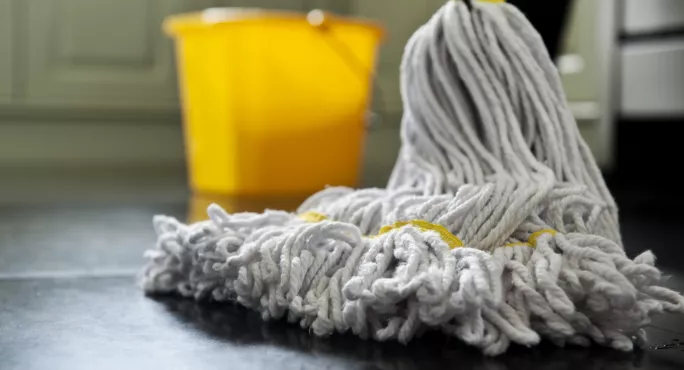- Home
- School toilets ‘not cleaned regularly’ anymore
School toilets ‘not cleaned regularly’ anymore

Schools are not being cleaned as well as they used to be - with no cleaning at all some days, and even vomit and other bodily fluids not being dealt with properly.
A survey also suggests that budget cuts are hitting cleaning services so hard that teachers are being forced to clean classrooms themselves, and links this to outbreaks of the norovirus and infestations of insects and rats.
The EIS, Scotland’s largest teaching union, carried out the national survey, which gathered responses from nearly 700 schools and led to findings published today.
School toilets: The dangers of pupils avoiding toilets
EIS AGM: Union to ‘strongly resist’ tech that replaces teachers
Long read: For an unsanitised view of school, talk to your cleaners
Last year’s EIS AGM passed a motion calling on the union to report on the impact of cuts to cleaning services in schools. Findings include:
-
80 per cent of survey respondents have seen a reduction in the frequency or quality of cleaning due to budget cuts over the past three years.
-
Many schools report no cleaning at all is carried out on some days.
-
Pupils’ desks, classroom sinks and other shared surfaces being cleaned irregularly or not at all.
-
Toilets not being cleaned regularly, and toilet rolls, soaps and drying materials not being replenished frequently enough.
-
Floors not being cleaned even if muddy; bins not being emptied; vomit and other bodily fluids not being cleaned up effectively.
-
Cleaners being provided with cheaper, ineffective cleaning products, or even just water, to clean with.
-
Cleaners being allocated too little time to clean each room effectively.
-
No absence cover being provided when cleaners are off sick.
Around 120 respondents stated that they or teacher colleagues had cleaned their classrooms or another part of the school. Several stated that they cleaned parts of the school themselves because they were concerned with pupils’ welfare and the cleaning would not be otherwise done. The following themes emerged:
-
Teachers using their own disinfectant wipes on surfaces (such as tabletops in their classrooms) as they were not otherwise properly cleaned daily.
-
Teachers cleaning vomit and other bodily fluids at times.
-
Teachers cleaning staff toilets and staffrooms.
-
Teachers emptying bins or replenishing toilet supplies.
-
Teachers (and cleaners) bringing in their own cleaning materials.
-
Teachers spending time cleaning rather than on pedagogical work.
-
Teachers and pupils having less pride in their schools.
EIS general secretary Larry Flanagan said: “The results of this survey make for worrying reading. Schools simply must be properly cleaned on a daily basis to ensure an appropriate learning and teaching environment for pupils and staff.
“Cuts to cleaning services are placing a great deal of strain on cleaning staff, in some instances forcing teachers to undertake cleaning of classrooms, and creating an environment where germs and disease can spread rapidly and with serious repercussions for the health of pupils and staff. This can lead to increases in pupil and teacher absence, with a detrimental impact on both wellbeing and on learning and teaching.”
He added: “Recent incidences such as major outbreaks of norovirus and infestations of insects or rodents in schools have further highlighted the consequences of cutting back on proper cleaning within our schools.”
The survey findings will be considered at this year’s EIS AGM, which takes place from Thursday to Saturday.
Register with Tes and you can read two free articles every month plus you'll have access to our range of award-winning newsletters.
Keep reading with our special offer!
You’ve reached your limit of free articles this month.
- Unlimited access to all Tes magazine content
- Save your favourite articles and gift them to your colleagues
- Exclusive subscriber-only stories
- Over 200,000 archived articles
- Unlimited access to all Tes magazine content
- Save your favourite articles and gift them to your colleagues
- Exclusive subscriber-only stories
- Over 200,000 archived articles



